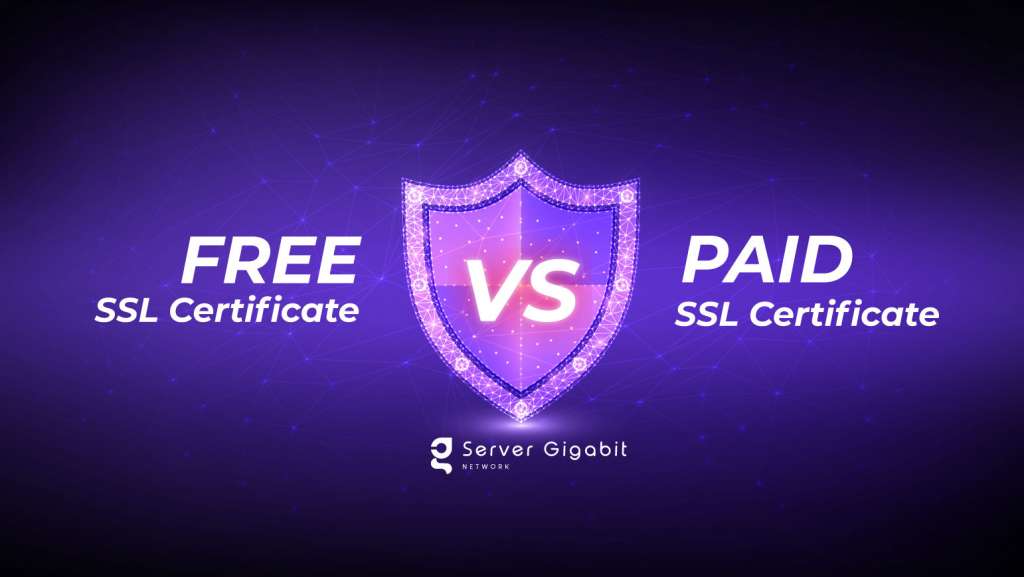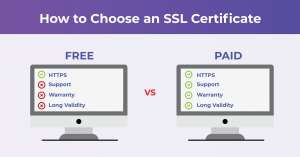At a moment when the number of hacking attempts and fraudulent activities is rising with each passing day, website owners and online users are becoming much more concerned about their security. Having built an SSL certificate has therefore become a requirement for every website.
As you probably know, two types of SSL certificates exist. The first is ‘Free SSL Certificate’ which is available for free as the name implies. The other paying one is commonly referred to as the ‘SSL Certificate.’
FREE SSL Validation
Domain Validated (DV) SSL certificates are quick and easy to get because all you need to do is prove the ownership of the domain that you wish to secure.
Paid SSL Validation
Domain Validated (DV) SSL certificates are quick and easy to get because all you need to do is prove the ownership of the domain that you wish to secure.
Organization Validated (OV) SSL certificates provide validation and higher assurance to web visitors that the website belongs to a legitimate business.
Extended Validation (EV) SSL certificates are the ultimate solution to provide the highest levels of encryption, security, and trust to your customers.
Key Differences Between Free SSL and Paid SSL
Type of SSL Certificate
Free SSL certificates only come with a Domain Validation (DV) option. DV certificates are used only for providing a basic level of authentication. Usually, they are used for platforms such as small websites and blogs. Free SSL certificates don’t have the provision for Organization Validation (OV) and Extended Validation (EV) certificates. Whereas the paid SSL certificates do come with OV & EV options, which are absolutely necessary for protecting business websites.
Level of Validation
When it comes to verifying a website owner’s business details before issuing a free certificate, CA does not validate anything apart from the identity of the website owner. While in the case of paid SSL certificates, verification of the identity of the website owner is a must before issuing the certificate to the site owner and in the case of OV & EV certificates, in-depth verification of the business is carried out by the certificate authority (CA).
Validity Period
Free SSL certificates provided by popular CAs are issued for 30-90 days. As a result, the website proprietor must renew the certificate every 30-90 days. In the case of paid certificates, they can be issued for a period of 1-2 years.
Support
Level of Trust
As mentioned earlier, the free certificates assist with domain level validation only. If one wants to get OV and EV certificates, he/she has no option but to go with paid SSL certificates. With OV & EV certificates comes visual indicators such as the business name in URL and Certificate information and better site seals. Whereas, free SSL certificates don’t deliver such privileges.
Warranty
With a free SSL certificate, if anything goes wrong on the CA’s end – like, a catastrophic failure of their PKI for instance – you are completely out of luck. Paid SSL certificates don’t have this issue, because they come backed by warranties that payout anywhere between 10 grand and 1.75 mils.





